

The statement in quotation marks is only true on Saturdays, but false every other day of the week. The negation of the statement is true every day of the week except Saturday. Therefore, the laws of logic say that a falsity can become a truth! (Vice versa is also possible!)

This statement is false during the weekends. (Saturdays & Sundays) Its negation is true during the weekends.

This statement is true on Tuesdays & Thursdays, but false every other day of the week. This is because of the order of the weekdays; Wednesday is the next day of week after Tuesday, & Friday is the next day of week after Thursday. Its negation is true on Sundays, Mondays, Wednesdays, Fridays, & Saturdays.

This statement is only true on Mondays; its negation is true on any day that is not a Monday. Isn’t this calendar logic simple? However, we can think bigger! Let’s bring in months, day numbers, & holidays into the mix!
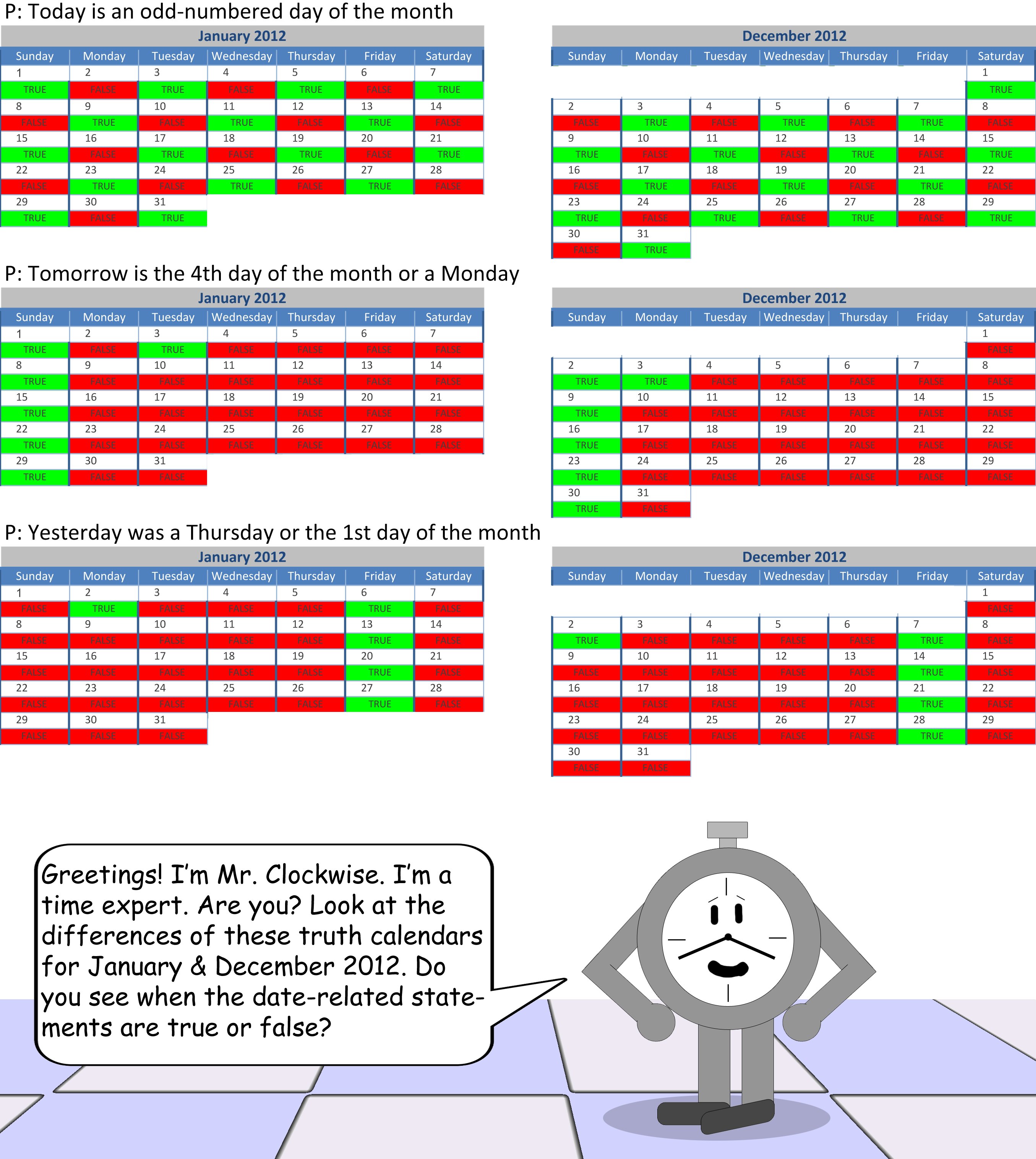
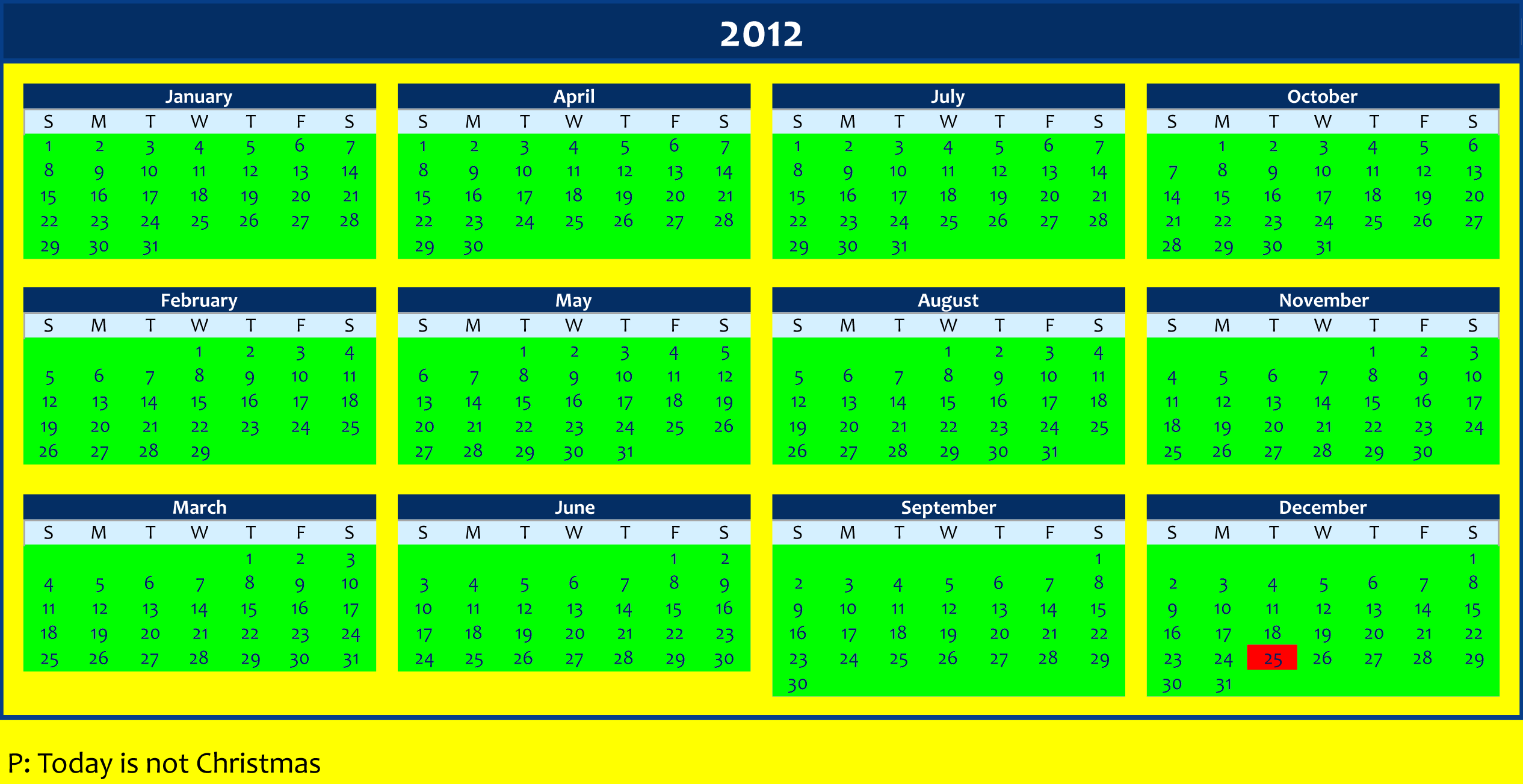
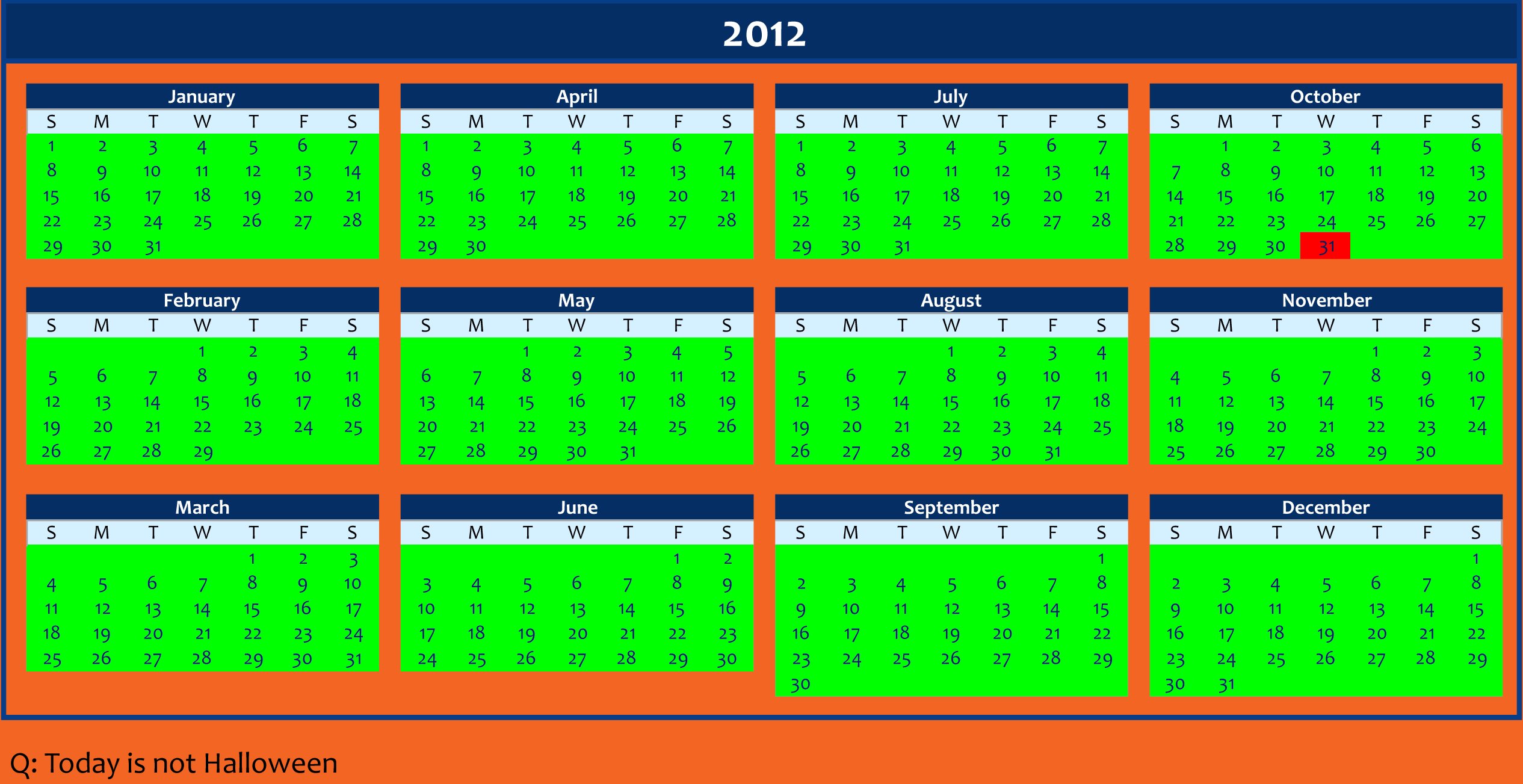
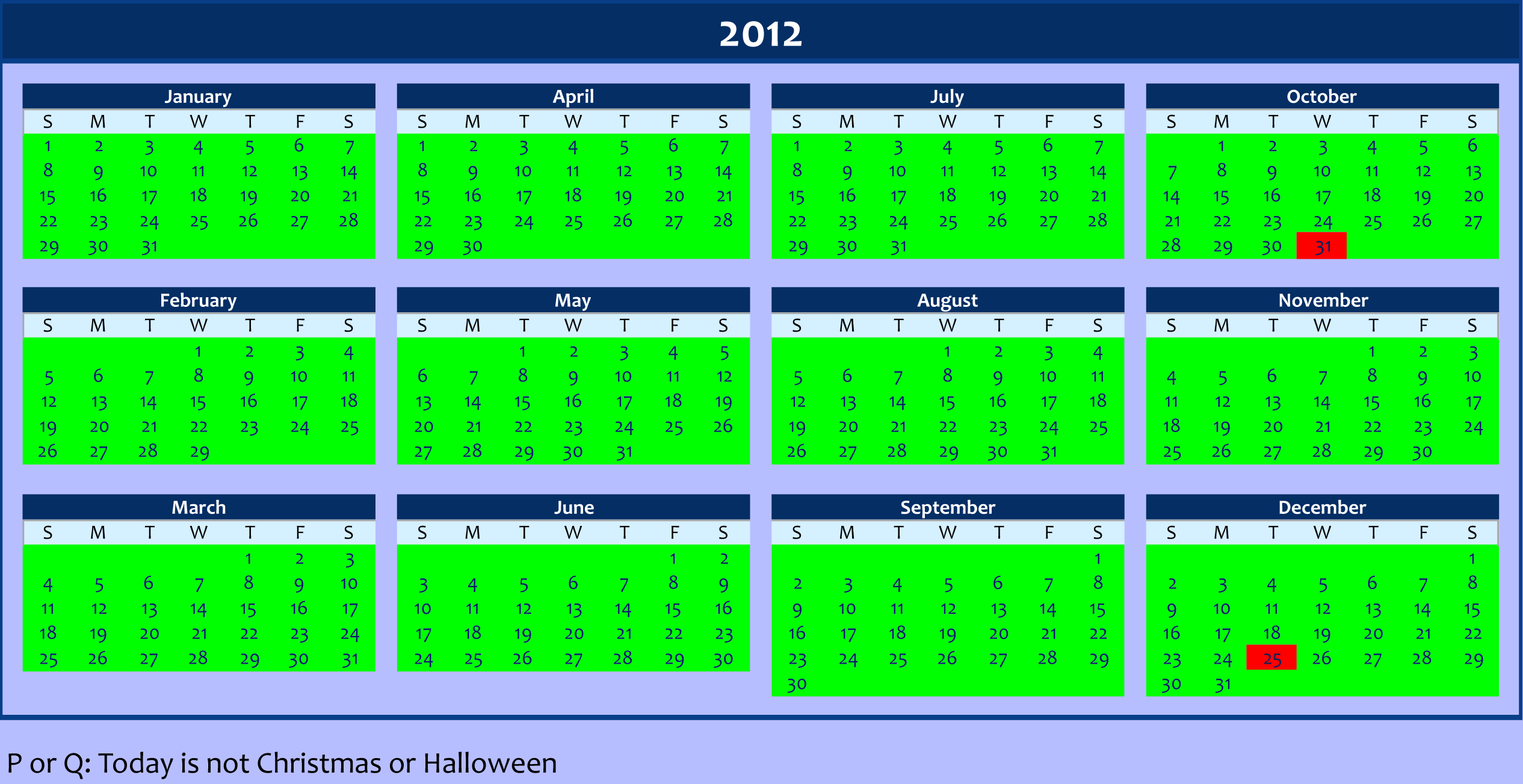
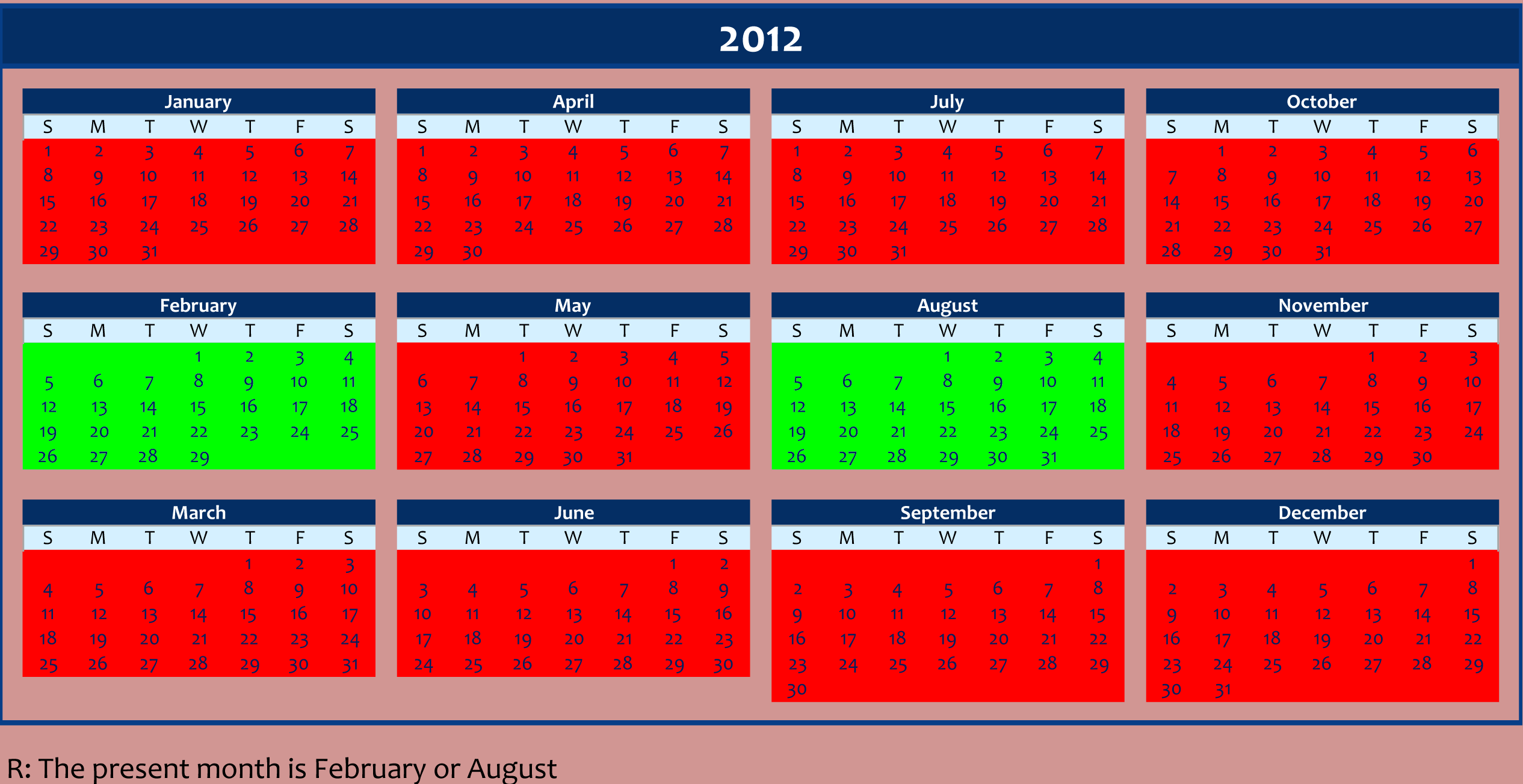
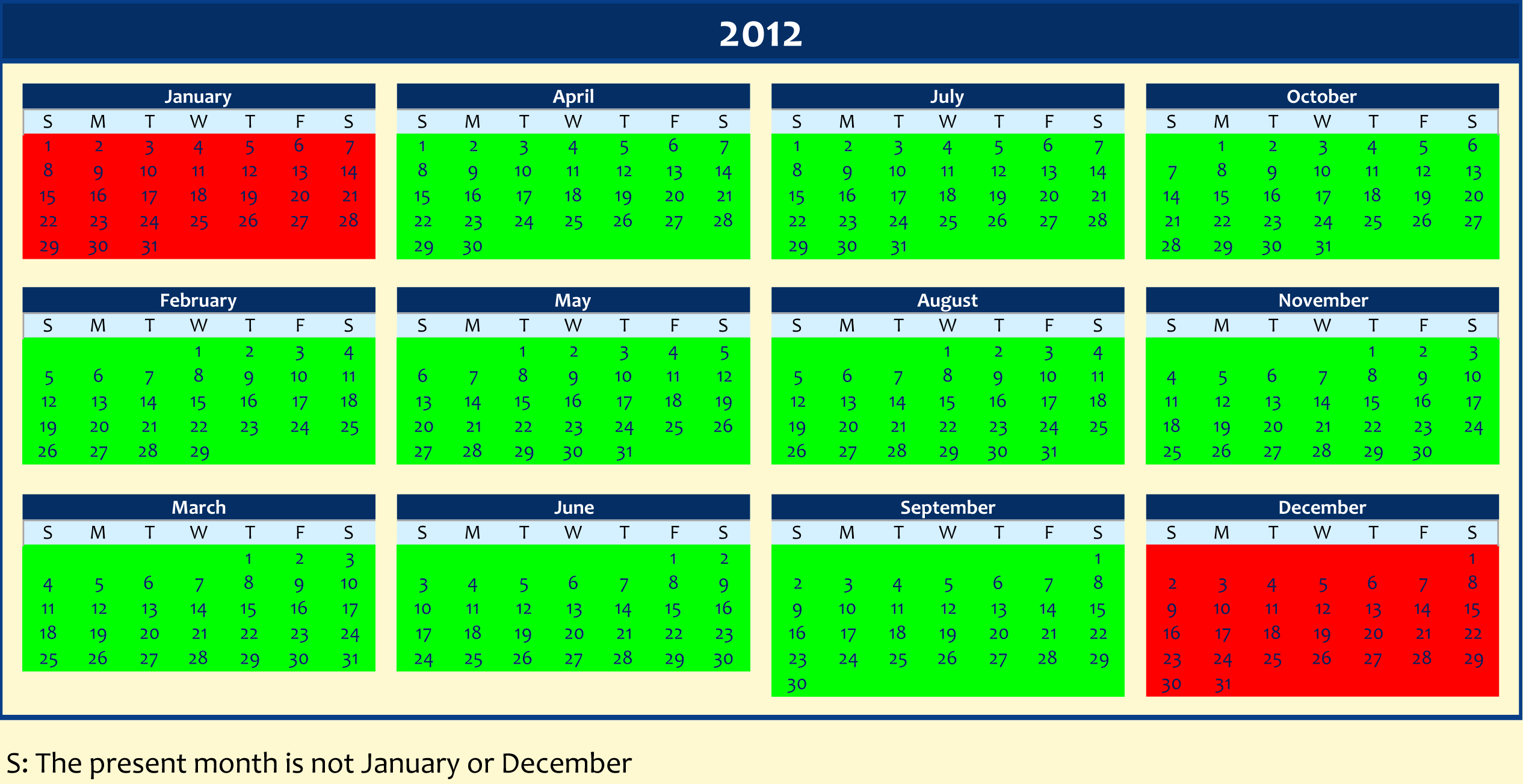
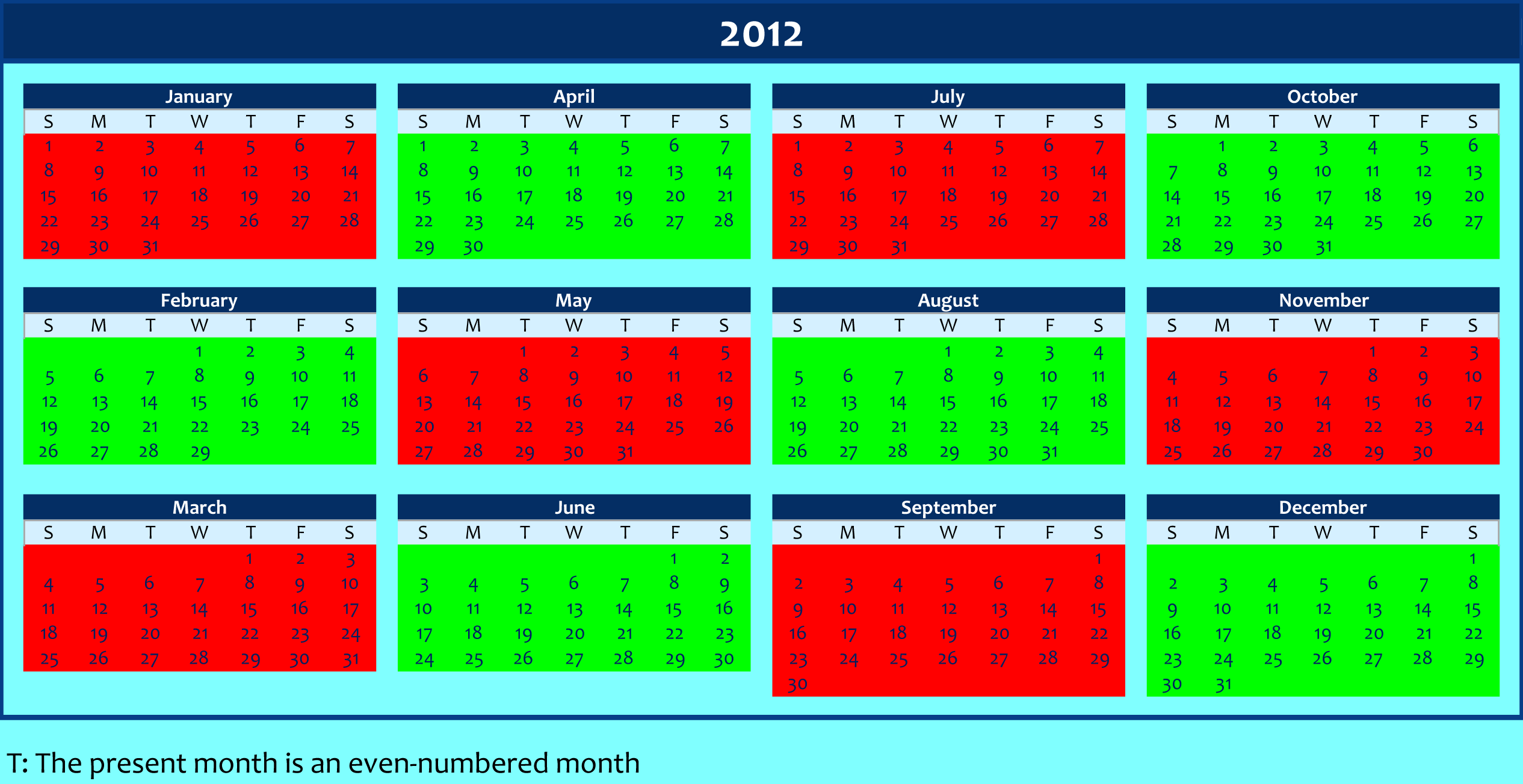
Green = True; Red = False

Statements like these are called tautologies. A tautology can't be used to tell a lie because it is always true, no matter what the case is.
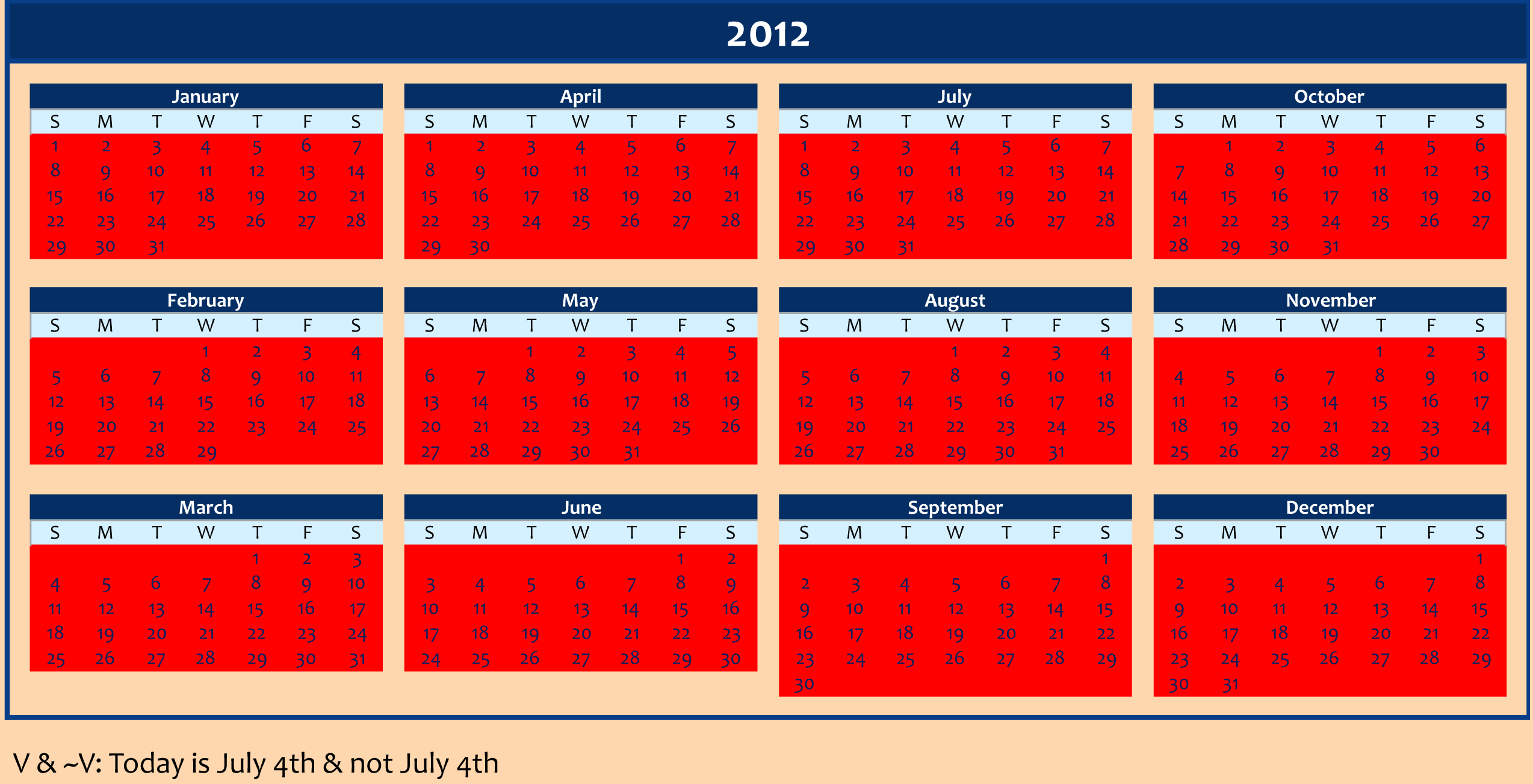
Green = True; Red = False, but none of the dates or months are painted green! They're all red!
Doesn't make sense, does it? This silly statement contradicts itself! A contradiction is always false; contradiction & tautology are opposite terms by the way. If a statement is sometimes true or sometimes false, it's called a contingency.
Can you think of any more date-related statements to try? You can create truth calendars, like what you just seen on this Web page, & use simple logic to determine when the statements are true or false. Have fun!
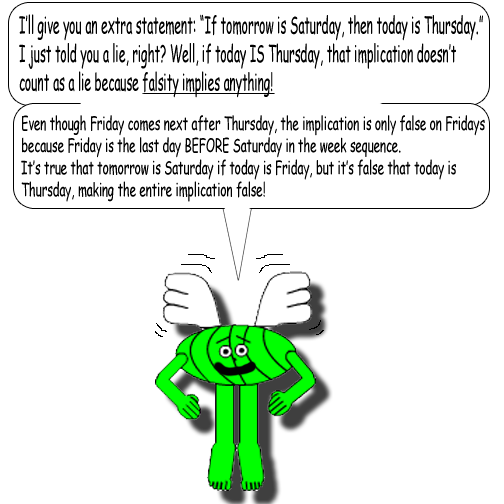

Back to Index Page Back to Math Trick Menu
© Derek Cumberbatch